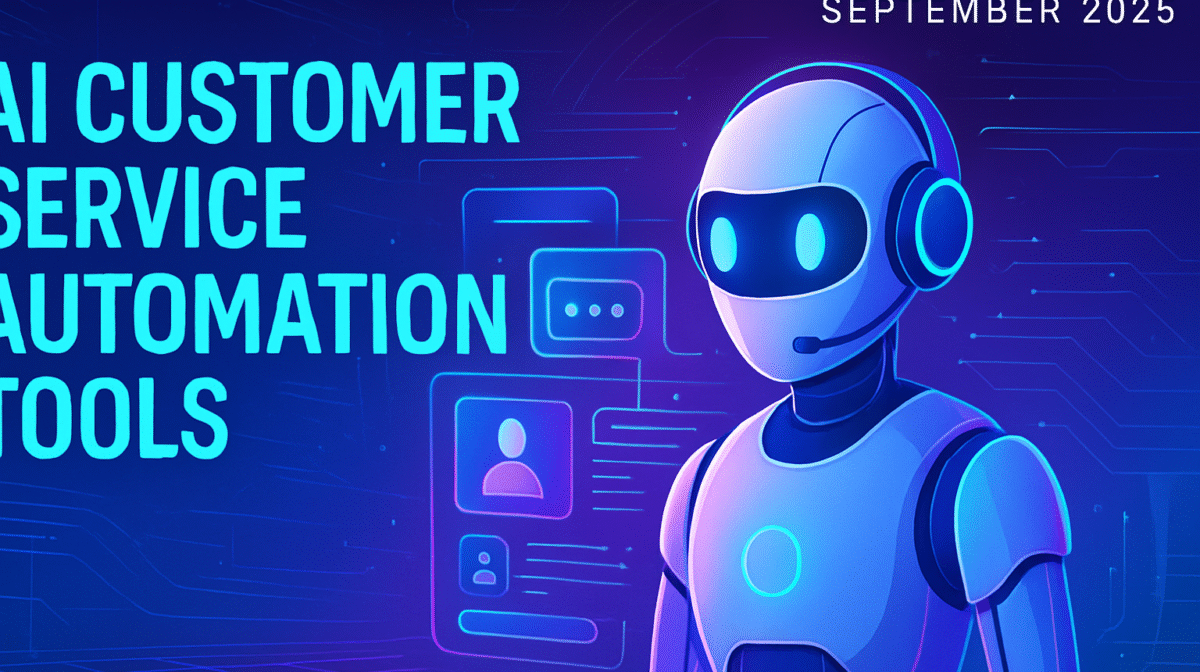
AI Customer Service Automation Tools Transforming Business Operations in September 2025
In today’s rapidly evolving digital landscape, AI customer service automation tools are revolutionizing how businesses operate and interact with their customers. As we progress through September 2025, organizations across industries are discovering the transformative power of artificial intelligence in enhancing customer experiences while streamlining their operational processes.
The Rise of AI-Powered Customer Service
Customer service automation has become a cornerstone of modern business operations. With the integration of advanced AI technologies, companies are witnessing unprecedented improvements in response times, accuracy, and customer satisfaction rates. These intelligent systems are capable of handling complex queries, providing 24/7 support, and learning from each interaction to continuously improve their performance.
Key Benefits of AI Customer Service Automation
Enhanced Operational Efficiency
AI-powered customer service tools significantly reduce response times and eliminate human errors. Automated systems can handle multiple customer inquiries simultaneously, ensuring that no query goes unanswered. This efficiency translates directly into cost savings and improved resource allocation.
24/7 Customer Support
Unlike traditional customer service models, AI automation tools provide round-the-clock support. Customers can receive instant assistance regardless of time zones or business hours, leading to higher satisfaction rates and improved customer loyalty.
Personalized Customer Experiences
Modern AI systems analyze customer data to provide personalized responses and recommendations. This level of customization creates meaningful interactions that resonate with customers and drive business growth.
Leading AI Customer Service Automation Tools
Chatbots and Virtual Assistants
Intelligent chatbots have evolved beyond simple rule-based systems. Today’s AI-powered virtual assistants understand context, emotion, and intent, providing human-like interactions that feel natural and helpful.
Predictive Analytics Platforms
These tools analyze customer behavior patterns to anticipate needs and proactively address potential issues before they escalate into complaints.
Automated Ticketing Systems
AI-driven ticketing systems automatically categorize, prioritize, and route customer inquiries to appropriate departments or resolution paths.
Impact on Business Operations in 2025
The adoption of AI customer service automation is reshaping business operations in fundamental ways:
- Cost Reduction: Companies report up to 40% reduction in customer service operational costs
- Improved Metrics: Average response times have decreased from hours to seconds
- Employee Satisfaction: Staff can focus on complex, value-added tasks rather than repetitive inquiries
- Scalability: Businesses can handle growing customer volumes without proportional staff increases
Implementation Strategies for Success
Start with Clear Objectives
Define specific goals for AI implementation, whether it’s reducing response times, cutting costs, or improving customer satisfaction scores.
Choose the Right Technology Stack
Select AI tools that integrate seamlessly with existing systems and can scale with business growth.
Train Your Team
Ensure employees understand how to work alongside AI systems effectively and can handle escalated issues that require human intervention.
Looking Ahead: Future Trends
As we move forward in 2025, several trends are shaping the future of AI customer service automation:
- Integration with emerging technologies like augmented reality
- Enhanced emotional intelligence capabilities
- Improved multilingual support systems
- Advanced predictive customer journey mapping
Conclusion
AI customer service automation tools are not just transforming individual business operations—they’re redefining entire industry standards. Organizations that embrace these technologies today will find themselves better positioned to meet evolving customer expectations while maintaining competitive advantages in an increasingly digital marketplace.
The key to successful implementation lies in strategic planning, proper tool selection, and continuous optimization. As AI technology continues to advance, businesses must stay adaptable and ready to integrate new capabilities that enhance both operational efficiency and customer satisfaction.





